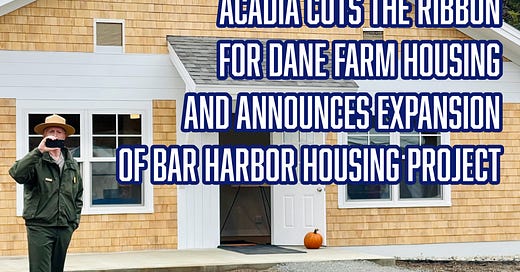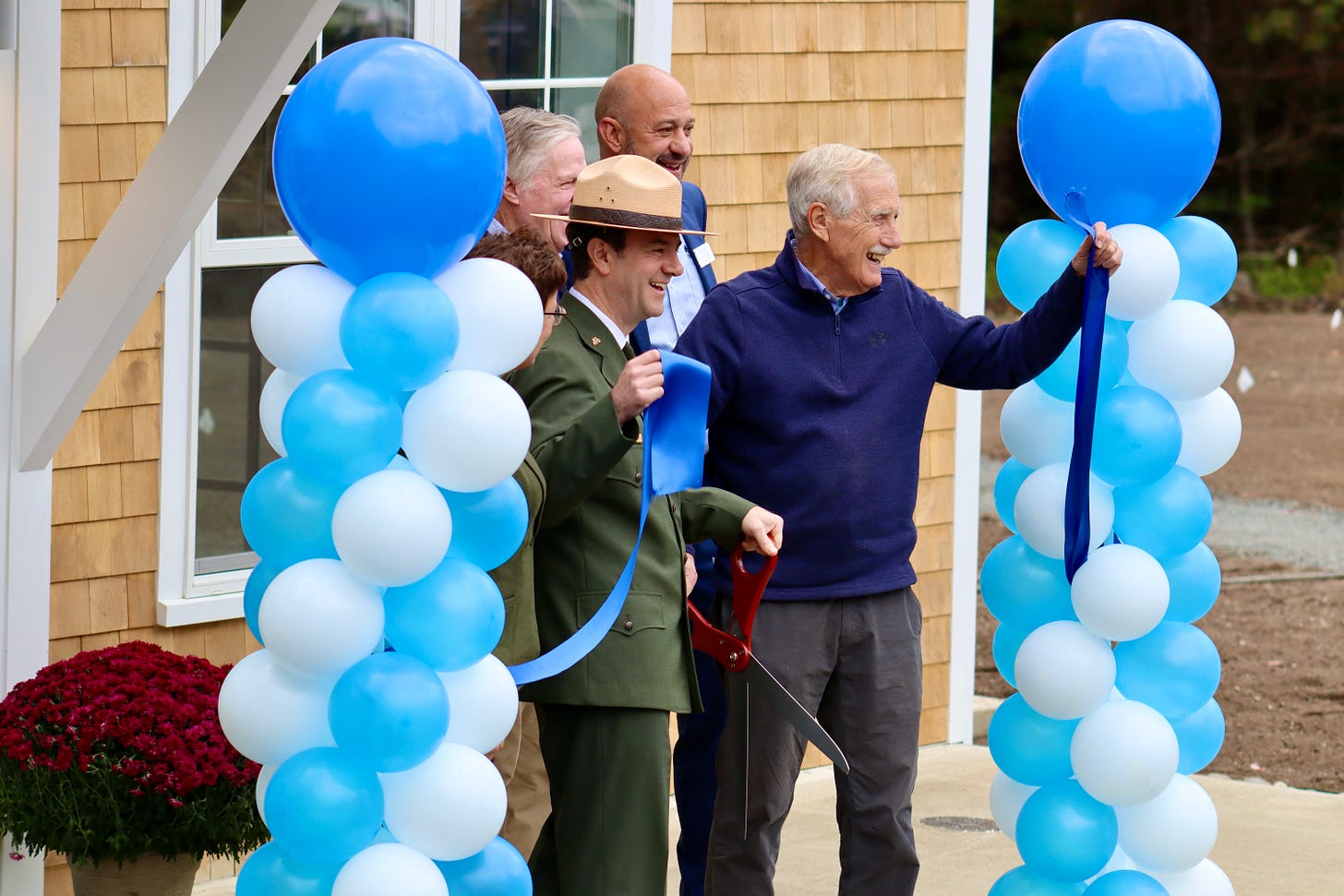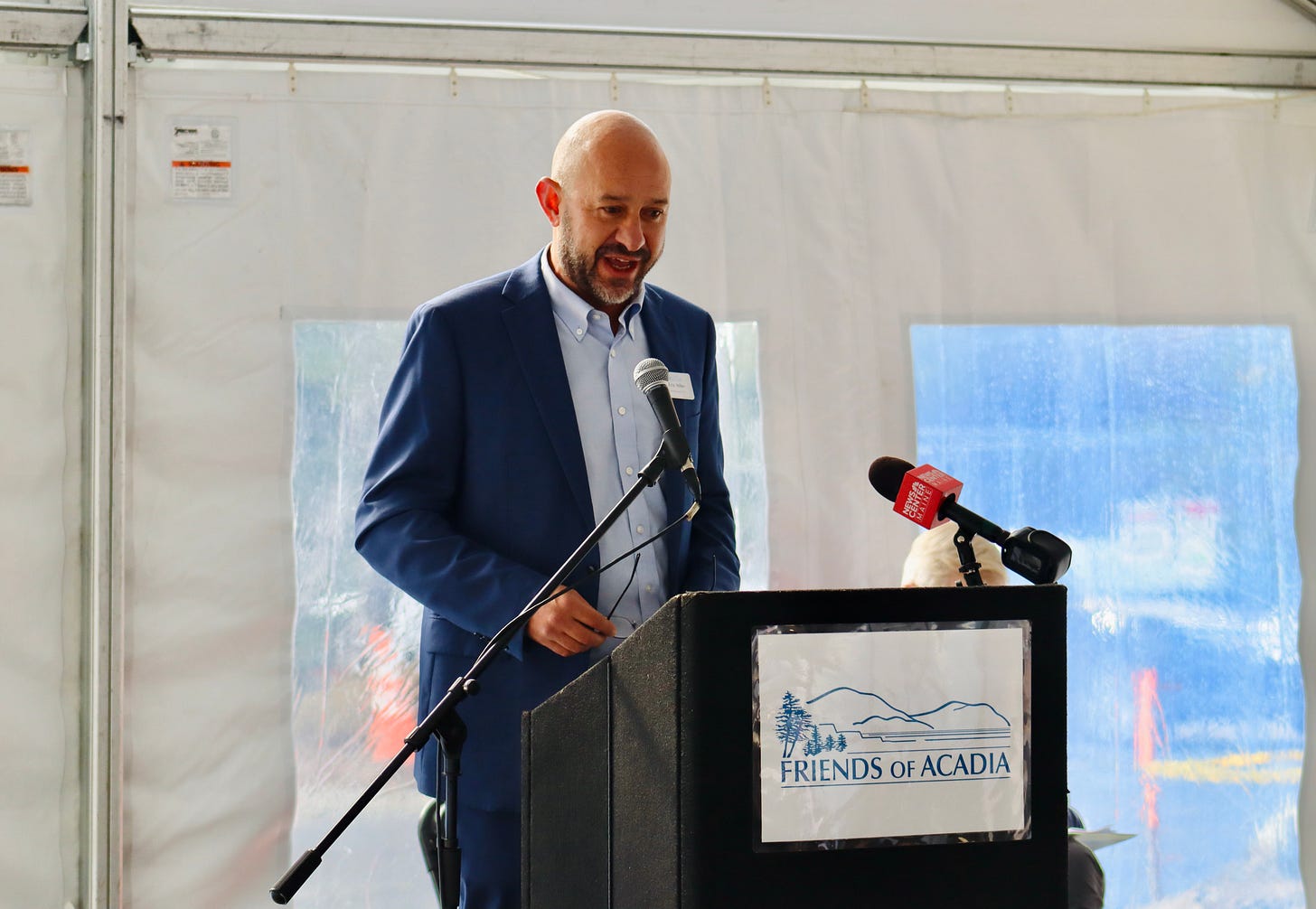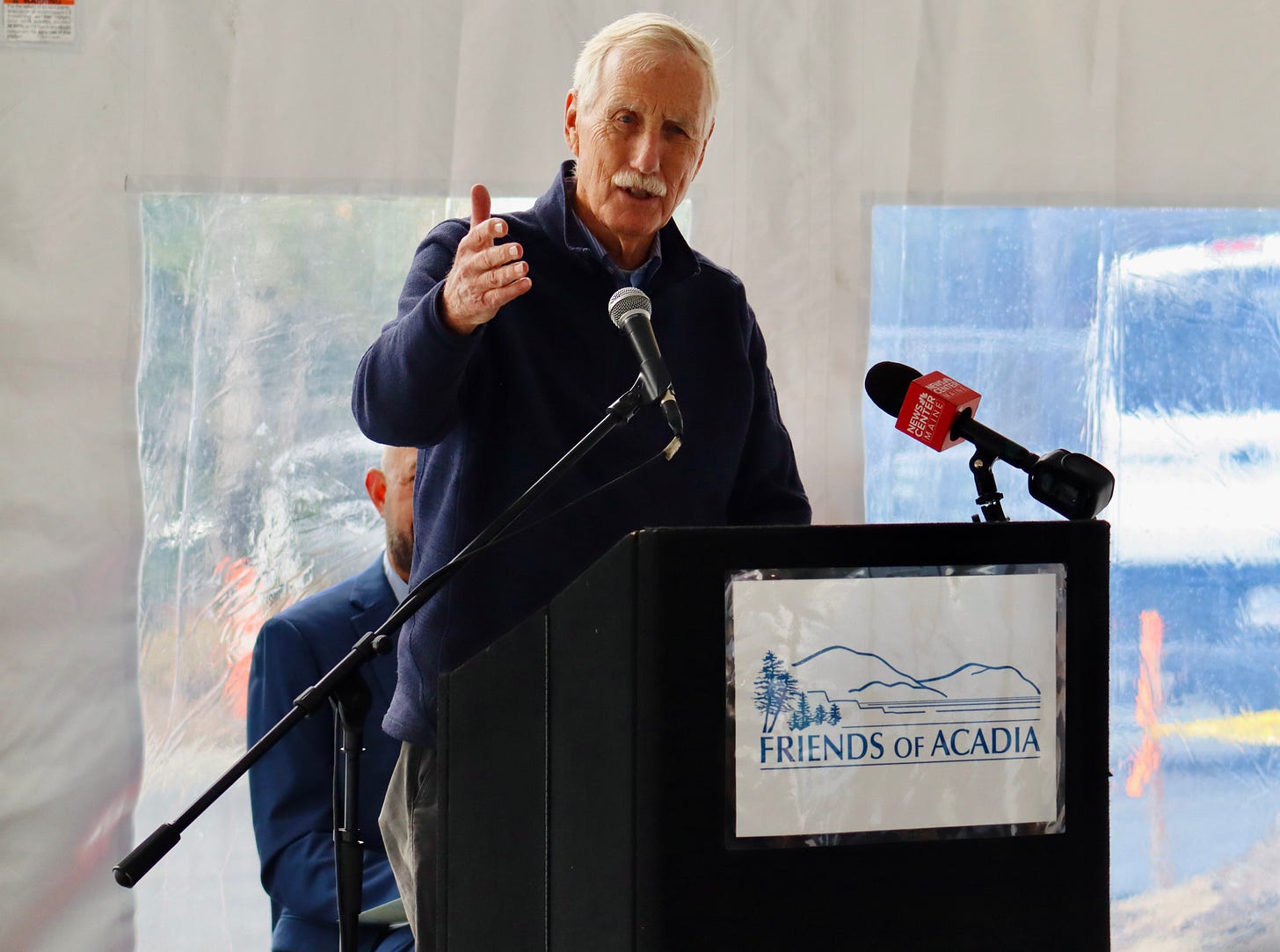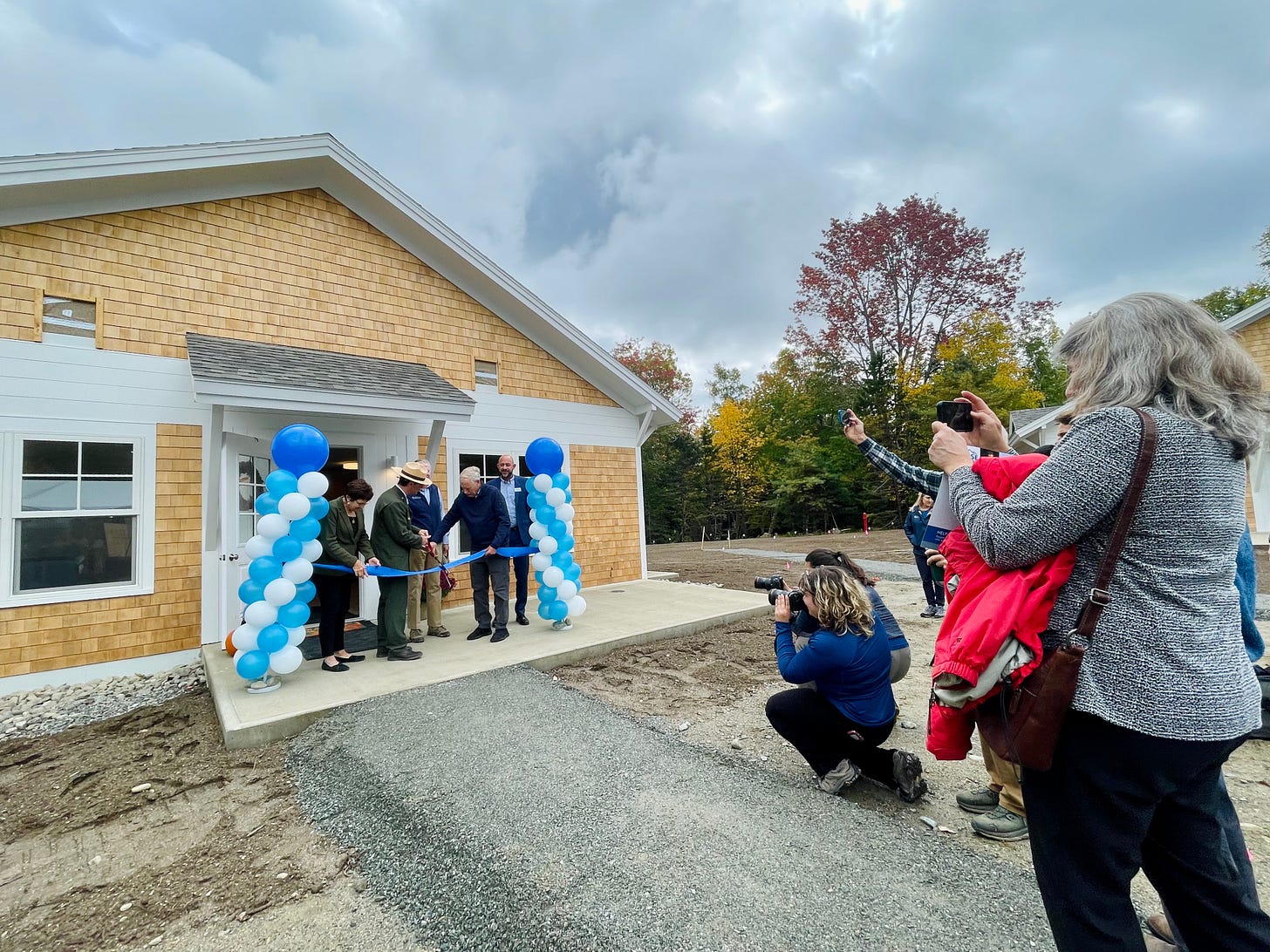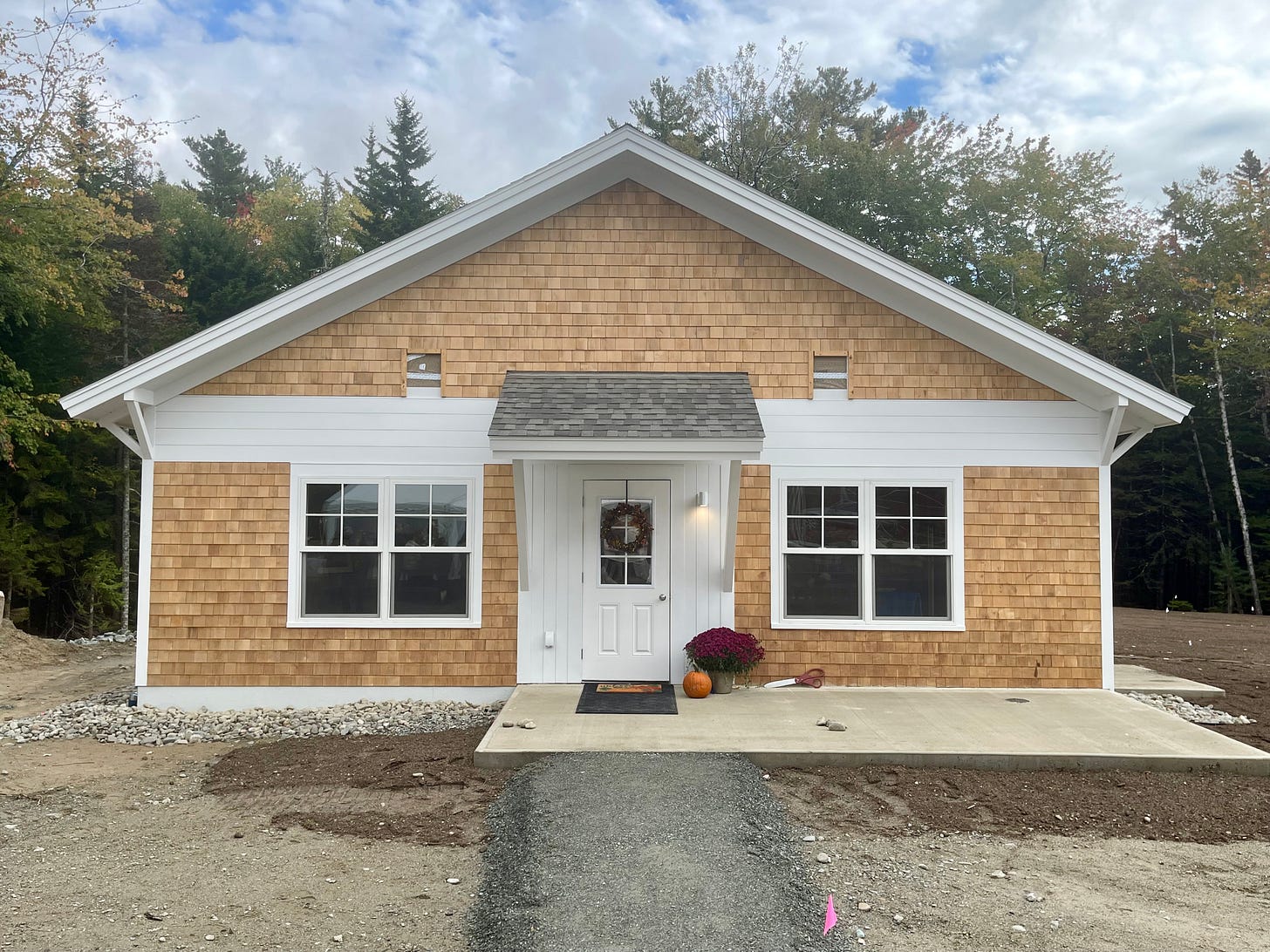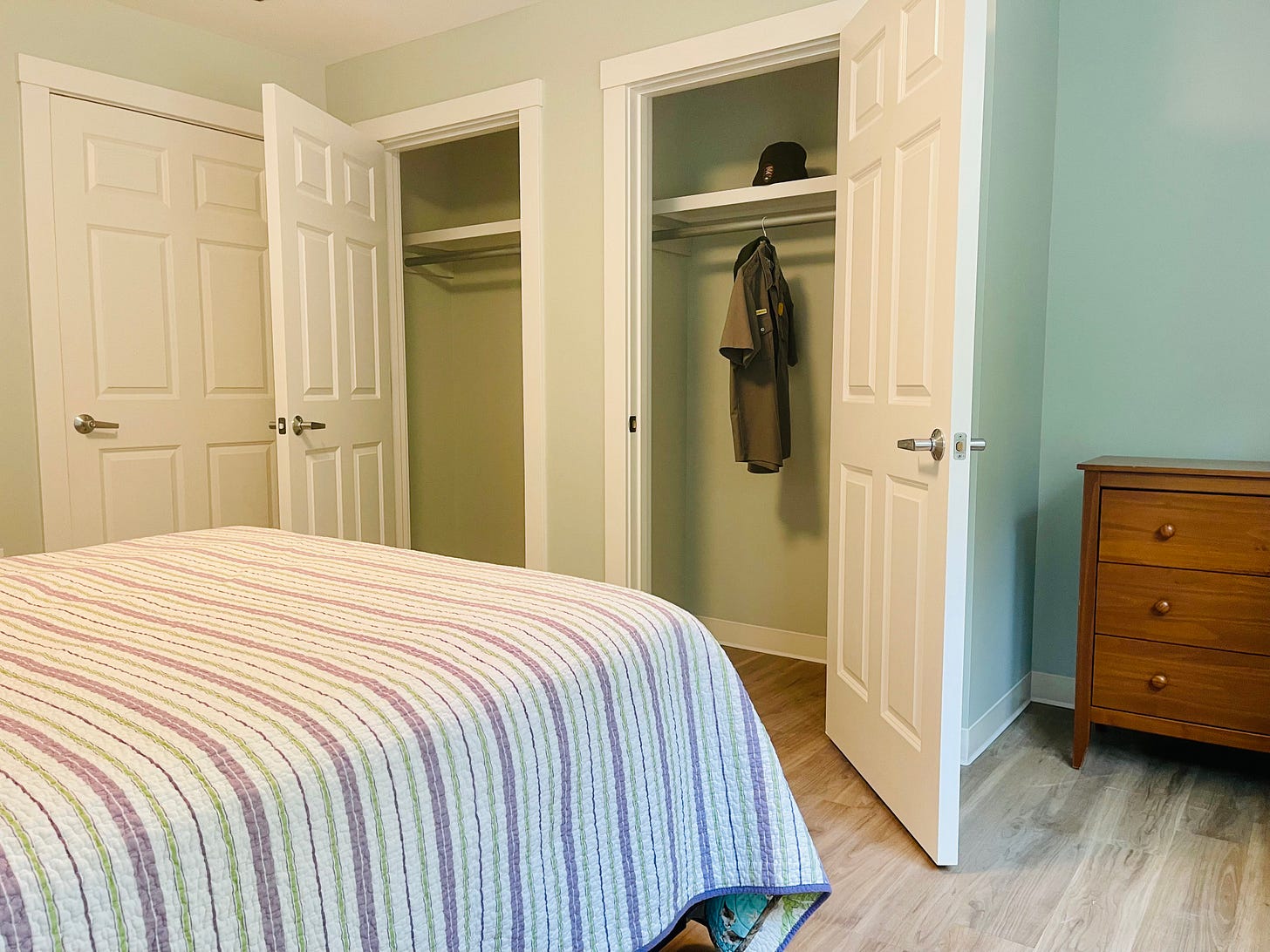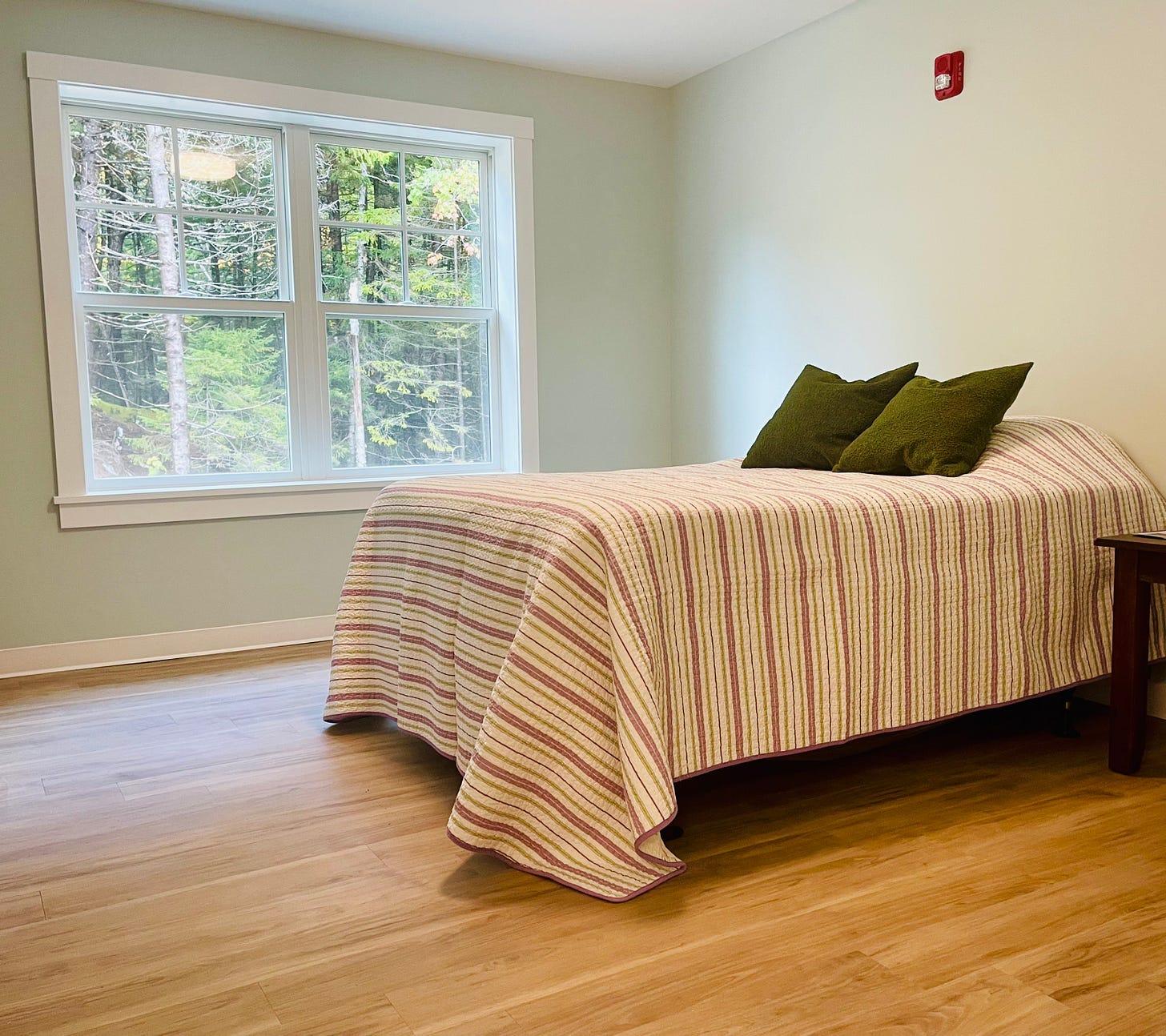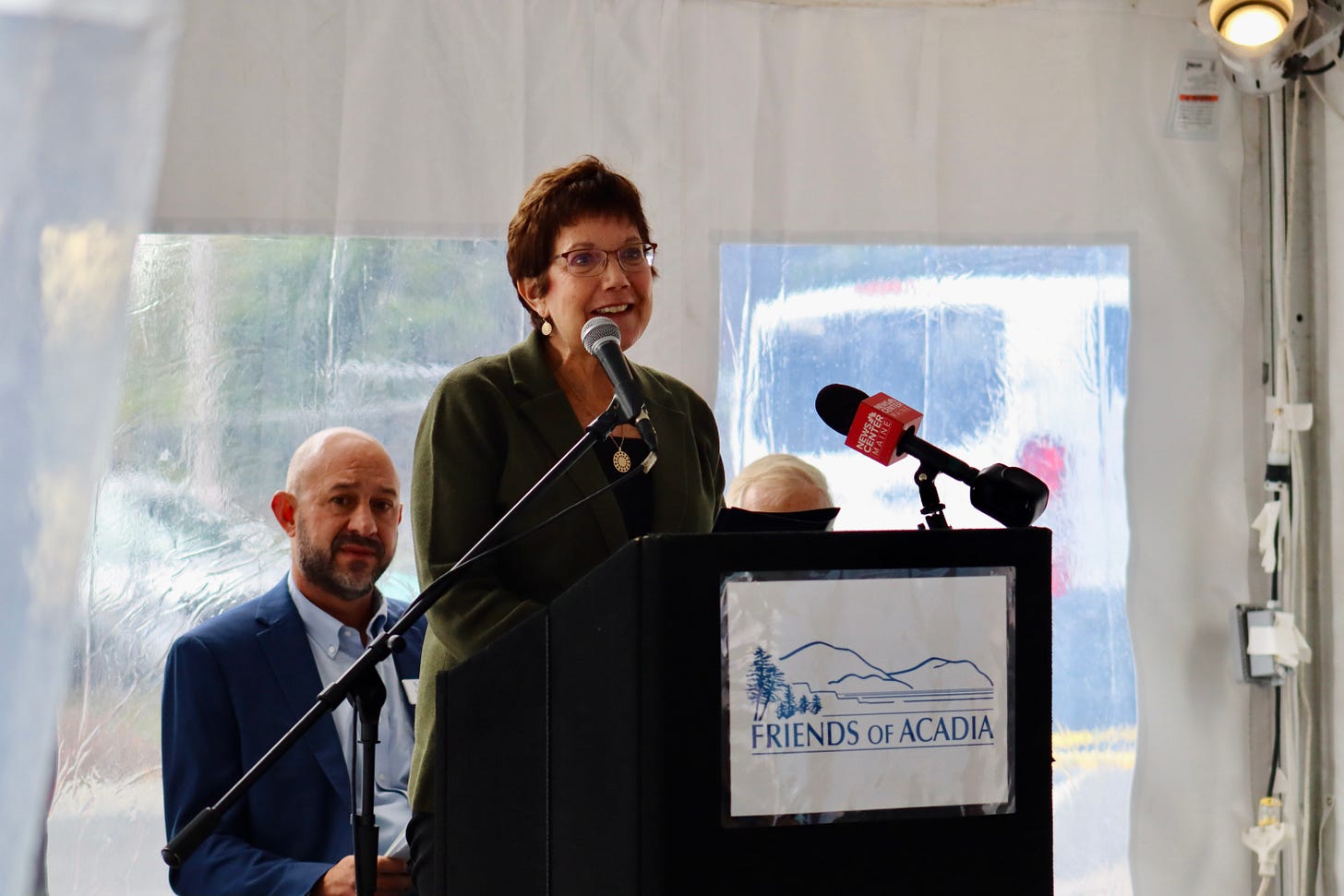Acadia Cuts The Ribbon for Dane Farm Housing and Announces Expansion of Bar Harbor Housing Project
SEAL HARBOR—Acadia National Park officials and Friends of Acadia had Senator Angus King on hand as they cut the ribbon on one workforce housing project and announced the expansion of the Harden Farm project in Bar Harbor from 28 units to 56, doubling the project size.
The announcement from Acadia National Park Superintendent Kevin Schneider during the Dane Farm housing ribbon cutting ceremony. That project on four acres near the Jordan Pond Road brings eight residences to seasonal employees and will be used next year.
Friends of Acadia purchased the property in 2023 from the Rockefeller family and quickly turned it into housing units. The organization, which has the mission to support the park, has donated it to the park in support of its mission.
“Friends of Acadia exists to support the park,” said its Board Chair, Ambassador William Eacho III.
FOA’s goal is to address the shortage of affordable and available housing to the park employees and also, in another project, to Island Explorer drivers.
People cannot work when they do not have housing. Schneider said that the park has lately only filled 115 of 175 positions because of housing needs. King echoed those statements and spoke of how in the state of Maine the housing stock is short approximately 84,000 units. Workers are recruited, he said, and they want jobs in Maine, but then can’t find places to live in Maine.
“That’s a problem,” King said, “for the economy.”
King said that it’s a problem that can’t be solved in one way, but has to be attacked creatively and on multiple levels. Gateway communities to parks have high demand for homes, but there are also supply chain issues and slow construction processes.
“We’ve got to be thinking creatively about how to modernize the construction process,” King said.
The events of the day, however, were focused on a celebration of collaboration and of national parks.
“National parks are band-aids for the soul,” King said.
Deputy Director for the Management and Administration of the National Park Service Lena McDowall concurred that housing is a priority and often complicated by the dynamics of gateway communities.
“All of you have played a role in helping us” to address that, she said. She added that these projects will be a template to be used across the country.
THE PROJECTS
The Harden Farm project represents everything that the National Park Foundation tries to do said its Chief Program Officer Lise Aangeenbrug.
It involves strong partnerships, a friends group that works in the surrounding community, and a park superintendent that can think outside the box and people like FOA’s Eric Stiles and Schneider that her organization trusts.
“It was a no brainer,” she said when it came to her organization’s support. That, she said, is because the parks aren’t just about the beauty, the vistas, the hikes, and the drives, but about the people who work there.
Those people who educate, fix the trails, keep the parks safe, dispatch, and fix the toilets of the park, Eacho said are imperative to keeping it running.
“They’ve got to be able to live somewhere,” he said.
To that end, Friends of Acadia is in the midst of its Raise the Roof campaign, announced earlier this year, and meant to raise $10 million toward housing projects.
“We’re going to hit our $10 million goal by the year’s end and we’re going to keep on going,” Eacho said. “It’s just a labor of love for all of us.”
The goal is to eventually house 125 to 150 seasonal employees at various locations.
“Every donor, every dollar counts. Our long-term success in tackling this immense challenge is dependent on both public and private funding. Together, we’re making a difference, one bedroom, one park ranger at a time.” said Stiles. “The dynamic partnership between the park and Friends of Acadia allows us to tackle the housing crisis head on. This effort will have a 100-year impact on the park and unlock opportunities for people to establish and continue incredible careers in the park service that help to preserve and protect these cherished places.”
“We are so grateful for everyone who has so graciously donated to these housing projects through Friends of Acadia as well as the incredibly generous support from the National Park Foundation,” Schneider said. “The park and park visitors rely on the services of skilled employees and these new housing options strengthen our ability to recruit and retain a quality workforce.”
The Harden Farm project is near the Kebo Valley Golf Club on Kebo Street extension in Bar Harbor. It currently houses apartments from the 1960s. Construction on the project’s first 28 units is scheduled to start on November 1. The funding for the second phase hasn’t been secured, and the design will be similar to the Dane Farm site.
Friends of Acadia leases the Kinsleigh Inn to the park to use for employees. That Southwest Harbor site was purchased in 2023 and can house ten. The group has also purchased property in Trenton to help the Island Explorer, a free bus system that runs through the park and into the surrounding community, house drivers.
Another site in Town Hill is also being eyed for Park employees and other workers. The Town of Bar Harbor is also involved in that project’s preliminary stages.
“We have an obligation,” Stiles said to bring housing to park employees. “We know the difference national parks have made in our own lives.” And, he added, in the lives of people’s families and communities.
Photos by Shaun Farrar/Carrie Jones/Bar Harbor Story
LINKS TO LEARN MORE
The FOA press release on its website
Stiles March statement about the campaign
If you’d like to donate to help support us, you can, but no pressure! Just click here.
If you’d like to sponsor the Bar Harbor Story, you can! Learn more here.


